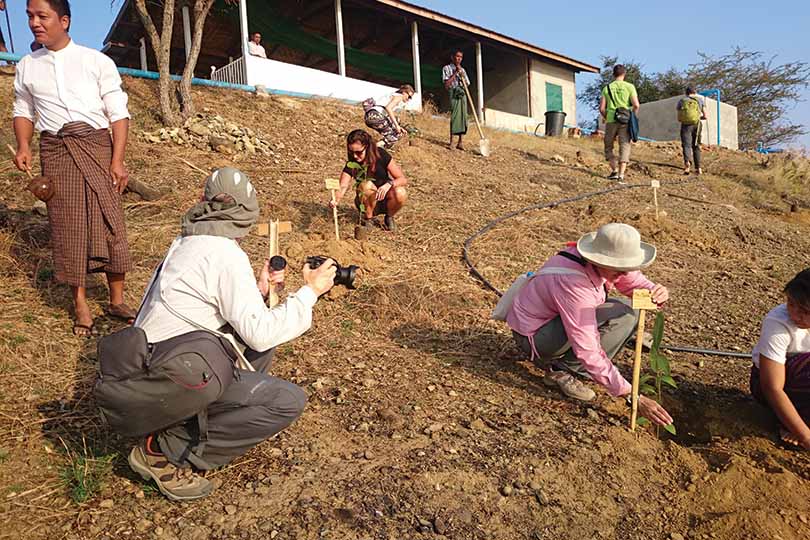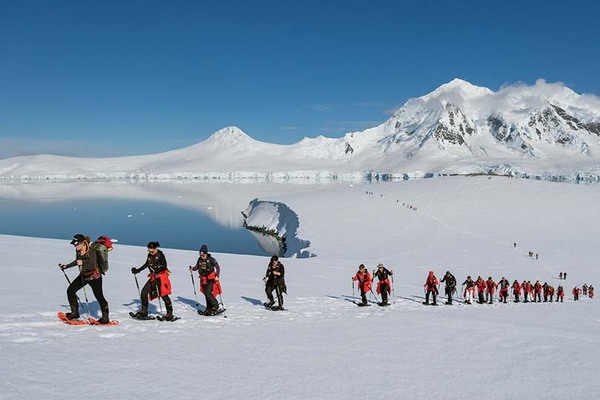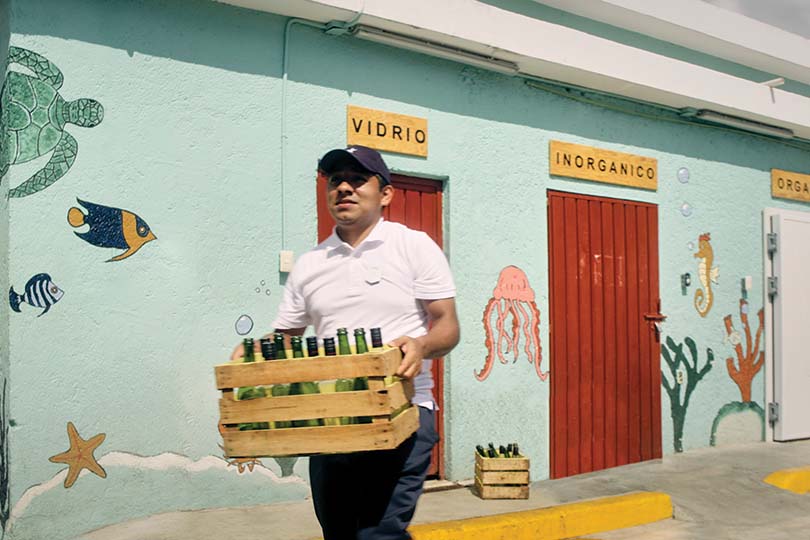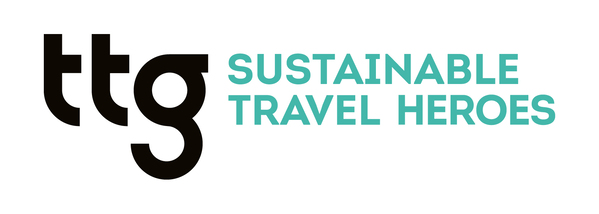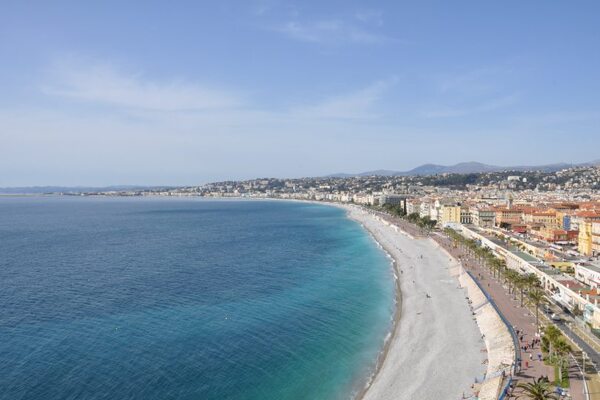How to identify the best sustainable travel partners
Researching and identifying sustainable travel partners can feel daunting. Here’s how best to gauge a company’s commitment to the cause.

The travel industry has made huge strides in championing responsible travel, and having a network of trusted suppliers committed to protecting the planet, people and wildlife can be a huge differentiator for agents.
Katie Leigh, UK sales, marketing and events executive at Hurtigruten Group, says as clients become more aware of the impact travelling can have on the planet, they become more selective about the companies they travel with.
“If a client is assured their holiday has as minimal negative impact as possible on the environment, communities and wildlife they visit, they will likely have a more enjoyable and guilt-free experience,” she adds.
Leigh says by understanding which partners are leading the way in sustainable travel, agents can better inform their clients. “This will hopefully help agents to gain repeat customers as [clients] trust their agent is committed to providing positive travel experiences for them.”
RESPONSIBLE CHOICES
There are indicators that can help agents cut through potential “greenwashing” and discover which companies are genuinely committed to sustainability. These include certifications – a very useful way to verify a potential partner’s claims.
When a business, hotel or operation has a certification, it has been independently verified by an external body against set criteria. There are many sustainability accreditation and certification programmes, so look for ones recognised by the Global Sustainable Tourism Council (GSTC). It’s widely regarded as the global standard – all approved certifications are listed at gstcouncil.org.
Travelife is a worldwide accommodation sustainability programme, owned by Abta and recognised by the GSTC, which helps properties assess and improve their environmental, financial and social impact. Many of the 1,000 global Travelife accommodation providers are available through UK operators and are all listed on staybetterplaces.com.
EarthCheck is another GSTC-approved certification agency, which provides organisations with a framework for environmental and social sustainability. More than 50 Iberostar hotels have been certified, each undergoing an annual process to measure indicators such as waste, CO2 emissions and energy consumption.
Another useful designation is B Corp certification, which measures a company’s entire social and environmental impact. Intrepid has been a B Corp since 2018, while Experience Travel Group earned certification this year.
GOOD GROUPS
Also consider if suppliers are in relevant trade member organisations. For example, Hurtigruten is a founding member of the Association of Arctic Expedition Cruise Operators and part of the International Association of Antarctica Tour Operators. Hurtigruten’s Leigh explains: “They work to establish sustainable tourism in polar regions, fight mass tourism and create guidelines to protect fragile environments and rare wildlife. This assures agents we are travelling as responsibly as possible to fragile destinations and are working to protect them for future generations.”
A company’s allegiance to particular organisations can be another useful benchmark. Liz Manning, Intrepid’s global responsible supply chain manager, says: “Tourism Cares and The Travel Foundation are both industry non-profit organisations committed to helping businesses operate more responsibly, and could be a good opportunity for agents to connect with potential partners and suppliers.”
Manning also recommends reviewing past recipients of relevant awards, like the WTM World Responsible Tourism Awards, and asking if companies have signed the Glasgow Declaration for Climate Action in Tourism. She also encourages agents to consider how transparent companies are. Do they share information about challenges, and how they have, or plan to, overcome them? Manning adds companies committed to operating responsibly should be open to sharing information.
COMMITTED TO COMMUNITIES
Sarah Weetman, sales director at G Touring (Just You and Travelsphere), suggests looking for suppliers placing an emphasis on community tourism. She explains: “Tourism can be the biggest form of wealth distribution if done correctly, that’s why we believe in giving communities a hand-up, and not a handout. Customers like to know that they are making a difference when they travel, and experiencing this as part of their holiday does just that.”
Suppliers will often partner with expert organisations, and G Touring works with non-profit community tourism specialist Planeterra.
SUSTAINABLE NETWORKS
Don’t be afraid to quiz suppliers on their supply chains. Alicia Alonso, sustainability marketing and communications manager at Iberostar Hotels & Resorts, says working with sustainable partners is “paramount” to the brand’s goal to be waste-free by 2025 and carbon neutral by 2030. Currently, 70% of Iberostar’s seafood comes from responsible sources, and it expects to reach 100% by 2025.
In 2020 the business worked with existing and new providers to banish single-use plastics, finding reusable and compostable alternatives. Alonso explains: “Our providers came up with new, more sustainable products for Iberostar that they could also offer to other companies, contributing to a bigger change in the industry.”
PRESSING QUESTIONS
Carolyn Wincer, Abta Travelife’s managing director, suggests questions agents can ask potential partners to understand their approach to sustainability. If suppliers don’t have these practices in place, ask if they plan to introduce them.
- Do you have a sustainability policy describing your commitment to operating responsibly?
- Are you committed to respecting, protecting and upholding human rights?
- Are you committed to safeguarding vulnerable people, animals, wildlife and places?
- Do you comply with all legislation relating to the environment, human rights, tax, finance, health and safety?
- Do you have policies and procedures to ensure your staff are treated fairly and in accordance with all labour laws?
- Have you taken steps to reduce the amount of energy your business uses?
- Have you taken steps to reduce the amount of waste you produce and recycle where possible, and make sure that solid waste and water does not pollute the environment?
- Do you engage in any activities that support your local community?
- Do you try to procure sustainable items?
For more guidance on how to sell sustainable travel, visit ttgmedia.com/sustainabletravelheroes
